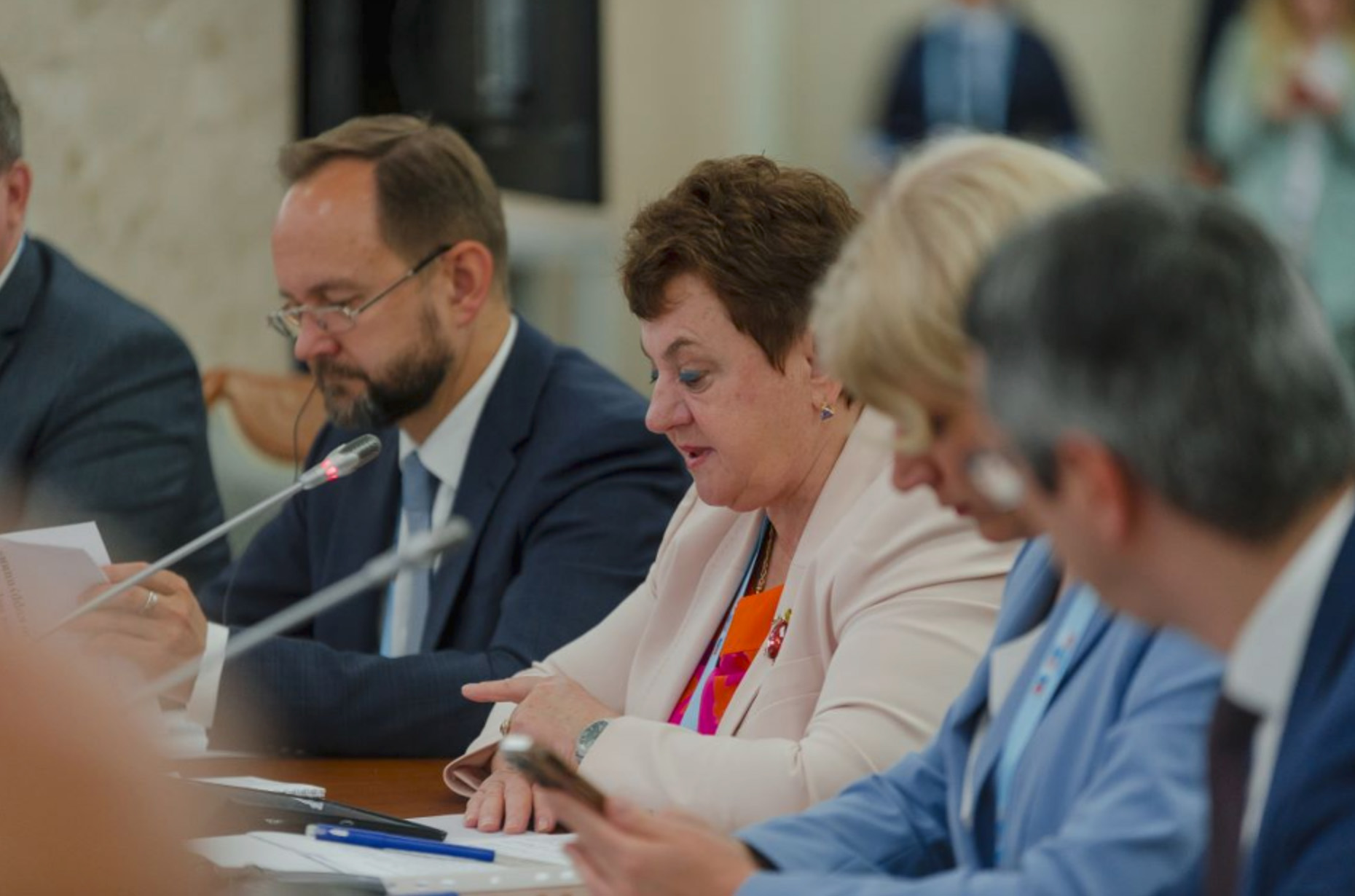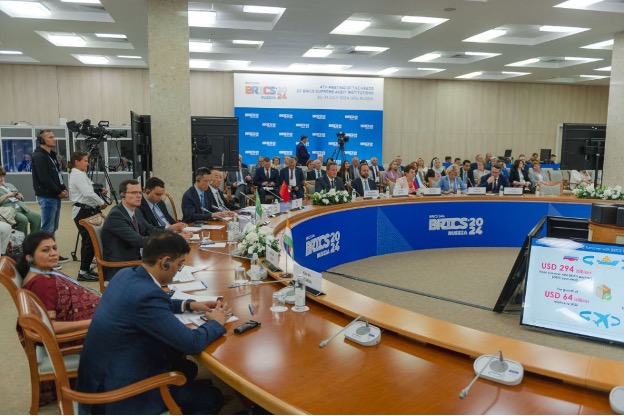Sharing experiences for common good: BRICS SAIs discuss best audit practices for combating corruption
On July 31, a round table on the “The role of supreme audit institutions in developing an environment of integrity by strengthening anti-corruption measures” was held on the sidelines of the 4th Meeting of the Heads of BRICS SAIs.
SAI delegations from the BRICS countries, the Republic of Belarus, regional audit institutions of the Russian constituent entities and of the Sirius Federal Territory took part in the discussion. Auditor, Member of the Board of the Accounts Chamber of the Russian Federation Svetlana Orlova moderated the discussion.
Opening the round table discussion, Svetlana Orlova emphasized that the Ufa Declaration approved by the SAIs Heads meeting reaffirms SAIs’ commitment to their key role in combating corruption, and upholding efficient, accountable, and transparent institutions at all governance levels.
“I believe that Supreme Audit Institutions working in the BRICS format would be able to materially improve quality of their corruption combating operations both within BRICS and for the global community as a whole,”
she said.
The Auditor also pointed out that fully eliminating poverty, combating the global warming, transitioning to the low-carbon economy would be impossible if the anti-corruption objectives are not achieved. “The transition to the low-carbon economy is a special area of accountability. Eliminating fraudulent competition, minimizing corruption risks, establishing fair regulations and transparent rules when promoting carbon neutrality should be points of special focus for Supreme Audit Institutions,” emphasized the moderator.
The discussion included an exchange of opinions about SAIs’ role in the anti-corruption activities of governments, a review of progressive approaches and digital tools used to detect corruption during audits, and deliberation on the SAIs’ anti-corruption competences development prospects.
Svetlana Orlova, in turn, spoke about the Accounts Chamber of the Russian Federation’s contribution to the anti-corruption agenda, and about SAI Russia’s key projects in that area.
“The Accounts Chamber makes extensive efforts to improve its anti-corruption activities. We have approved a designated an anti-corruption roadmap, and we are implementing the Anti-Corruption project. Our priority here is to introduce corruption risk prevention measures into our budget operations, as well as to automate algorithms for their detection and assessment. The Accounts Chamber’s 2024 novation was analyzing implementation of anti-corruption measures by 70 ministries and departments as part of their 2023 federal budget performance control (in February–April 2024). Additionally, this year we made a comprehensive analysis of the 2023 budget expenditures on gifts and souvenirs for the first time,”
said Svetlana Orlova.
Another key event in the area was pilot use and approval of Methodical Recommendations for Corruption Risks’ Identification and Assessment during Audits.
“Our recommendations are aimed not only at identifying violations that have a corruption component. They can also be used for analyzing ministry or department operations when it comes to setting up and implementing corruption risk management systems. We have already made a tentative list of 116 corruption risk indicators. So far, it only covers the procurement. We plan on expanding it,”
said Svetlana Orlova.
On international platforms, the Accounts Chamber of the Russian Federation also puts an emphasis on countering corruption. In 2023 and 2024 alone, for instance, SAI Russia held 32 events to share the best anti-corruption practices with the SAIs of Africa, the Middle East, Indonesia, as well as with almost all CIS countries.
The Accounts Chamber of the Russian Federation is also an active participant of the INTOSAI Global Expert Team (IGET) for combating corruption, led by the United Arab Emirates. SAI Russia’s representatives, for instance, were actively involved in developing the Practical Guide on Enhancing the Collaboration between Supreme Audit Institutions and Anti-Corruption Bodies. The Guide presents 14 suits of practical measures to combat corruption, and promote openness and transparency principles in government bodies.
Summarizing the discussion, Svetlana Orlova emphasized once again the importance of SAIs, with their status, experience and knowledge of the best international practice, in the fight against corruption.
“I am positive that together, we will be able to cover this important path, to improve work quality of all government bodies, and therefore, quality of life for people in our countries,”
Svetlana Orlova concluded.





